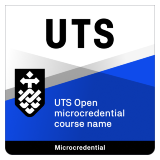The following content will be covered during this microcredential:
- Consumer behaviour
- Customer lifetime value
- Market segmentation, targeting, and positioning
- Customer analytics
- Digital and social marketing.
Course delivery
This course is delivered online using a range of resources, self-directed study and live interactive sessions with the academic. Course content will be presented online to participants in a variety of formats, including lecture slides, notes, videos and articles.
At the beginning of the unit, participants are expected to review materials and complete tasks on their own before attending weekly online review sessions with the lecturer (sessions are spread over the learning period). Materials will be provided on the learning management system, but participants are also expected to seek information independently. Feedback will be given following formative assessment and during the online sessions.


















